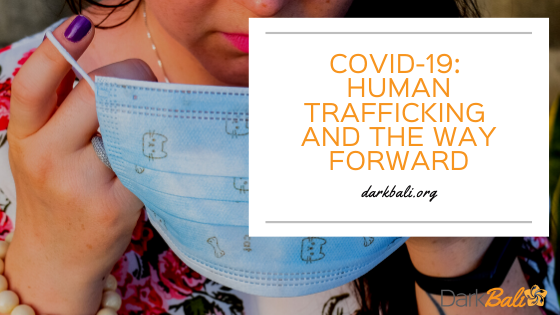“Outbreaks are associated with several well-documented trafficking risk factors, from the breakdown of rule of law and increase in criminal activity to competition for resources and diminished economic opportunity.” – The Disease Outbreak and Human Trafficking Connection
The COVID-19 pandemic is like nothing we have seen in the last century. It is a crisis that has affected nearly every country across the globe and has led to a cascade of consequences including soaring death rates in the hardest hit areas and significant economic recession worldwide. It seems that nearly every industry has been impacted. The human trafficking industry is no different.
While it is disturbing to think of human trafficking as an “industry,” that is exactly how it operates. Traffickers do not look at their crimes through the lens of morality. For them, it is simply doing business, and it is a lucrative one netting around $150 billion annually. The sex trafficking industry in particular has a net profit margin of 70%, making it one of the most profitable businesses in the world.
Like in any other industry, the supply-demand loop dictates what goods are sold and how. However, unlike other industries, the “products” in human trafficking are people, and the impact on the industry has direct impact on victims’ lives and well-being.
Businesses are adapting to the COVID-19 pandemic in a variety of ways. Many companies have gone virtual to market their services and products to people who are unable to access them normally. Similarly, some traffickers have taken their “products” online resulting in a spike in cybersex trafficking. Other businesses have adapted to the new priorities of the economy by switching to the manufacturing of medical supplies and personal protective equipment. Labor traffickers have done the same. The use of labor trafficking victims in the medical glove industry has been documented before, but the COVID-19 pandemic means that newer restrictions and protective measures have been rolled back and traffickers have found a new use for slave labor in meeting the high demand for medical gear. Essentially, traffickers are illicit business people who are adapting to the changing economic climate along with everyone else.
Just as businesses must adjust to their particular region’s COVID-19 regulations and impact, so do the traffickers. For example, COVID-19 has created a new wave of indentured slaves in India through offering loans to newly unemployed people and calling them due with the alternative option of enslavement (a practice known as debt bondage). In other places like Indonesia, sex traffickers have taken the approach to freeze expenses and wait out the pandemic. While this could be a legitimate way to respond if a business is selling shoes, “waiting out COVID-19” is a life-threatening business decision when the products being sold are women and children and freezing expenses means not feeding or supplying medical care and basic hygiene supplies to victims.
Those working in the anti-trafficking sector must be as adaptive as human traffickers. What we were doing to address the human trafficking issues in our communities simply might not be what we should do going forward. Our work now is to pay attention to the changes on the trafficking landscape and adjust our responses accordingly.
Coalitions like Dark Bali are the most prepared to do this easily and effectively. Our work has always required creative innovation and flexibility as we ask our partners around the country what they need and develop a quick, coordinated response based on their answers. This is the DNA of a functioning coalition. The way forward during the pandemic and after will be to find out how the landscape has changed, what the new needs are, and coordinate a data-driven response that empowers local organizations to take action together. Disease outbreaks such as COVID-19 will always be exploited by fast thinking predators interested in an easy profit at the expense of human lives. They must be countered by equally quick-thinking and adaptive anti-trafficking organizations who are ready to answer the needs of the moment even if they are different from the needs of yesterday.
To find out how Dark Bali is coordinating a national response to COVID-19 based on the changes in the human trafficking landscape in Indonesia, see our project page at https://www.darkbali.org/covid-19-rapid-response/






